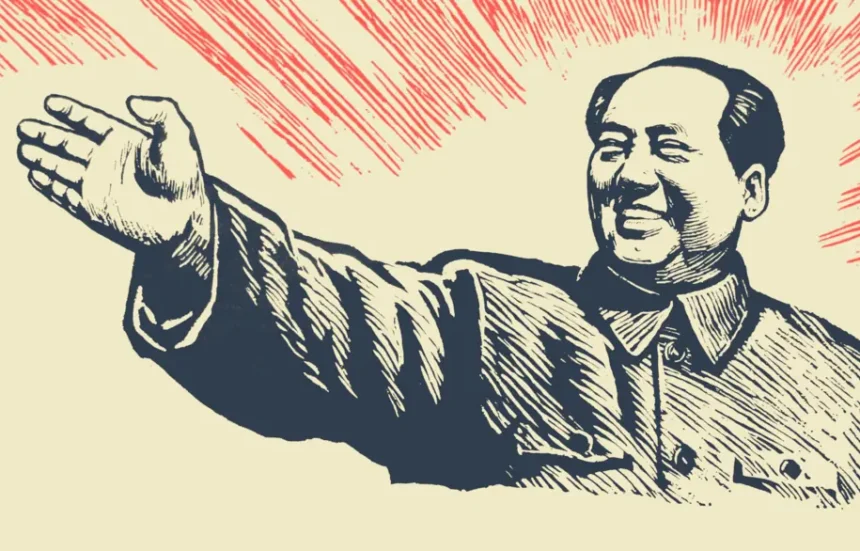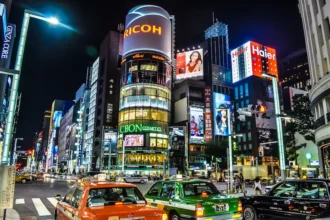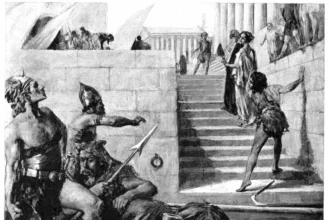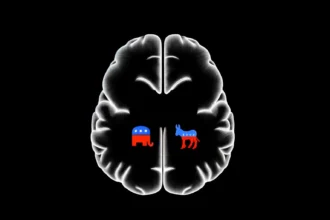How can we explain the change in Chinese foreign policy behavior, especially its assertive turn in the recent decade? Structural realism and regime-type theories are often used to provide answers.
Structural realism focuses on relative power and sees the change as the natural result of the shifting global balance of power: as China’s relative power expands, its ambition expands. A more powerful China inevitably redefines its national interests more expansively, intensifies its territorial disputes with neighbors, and challenges the US for global dominance.
This theory helps understand China’s recent assertive behavior but cannot explain foreign policy transformation in the history of the People’s Republic of China (PRC). When China’s relative power was seriously constrained in the 1950s-1970s, Chinese foreign policy was assertive. China fought six border wars, including the wars with the much more powerful US and the Soviet Union.
My book integrates the structural realism and regime type theories and develops a leadership-centered approach to explain China’s foreign policy transformation.
Chinese foreign policy moderated in the 1980s. Although China’s relative power was not fundamentally changed, China avoided confrontation with the US and other countries. The moderate policy continued in the 1990s-2010s, when China’s relative power increased significantly and became a rising power.
China became assertive and confrontational in the recent decade despite slowing economic growth and concerns about its diminishing role as the world’s economic engine. China, therefore, overreached by acting assertively beyond its capacity.
The regime-type theory attributes China’s confrontational policy to its authoritarian system. Only regime change can bring a fundamental policy shift. However, China’s foreign policy experienced many turns while the authoritarian state remained.
A Leadership-centered Approach
My book integrates the structural realism and regime type theories and develops a leadership-centered approach to explain China’s foreign policy transformation.
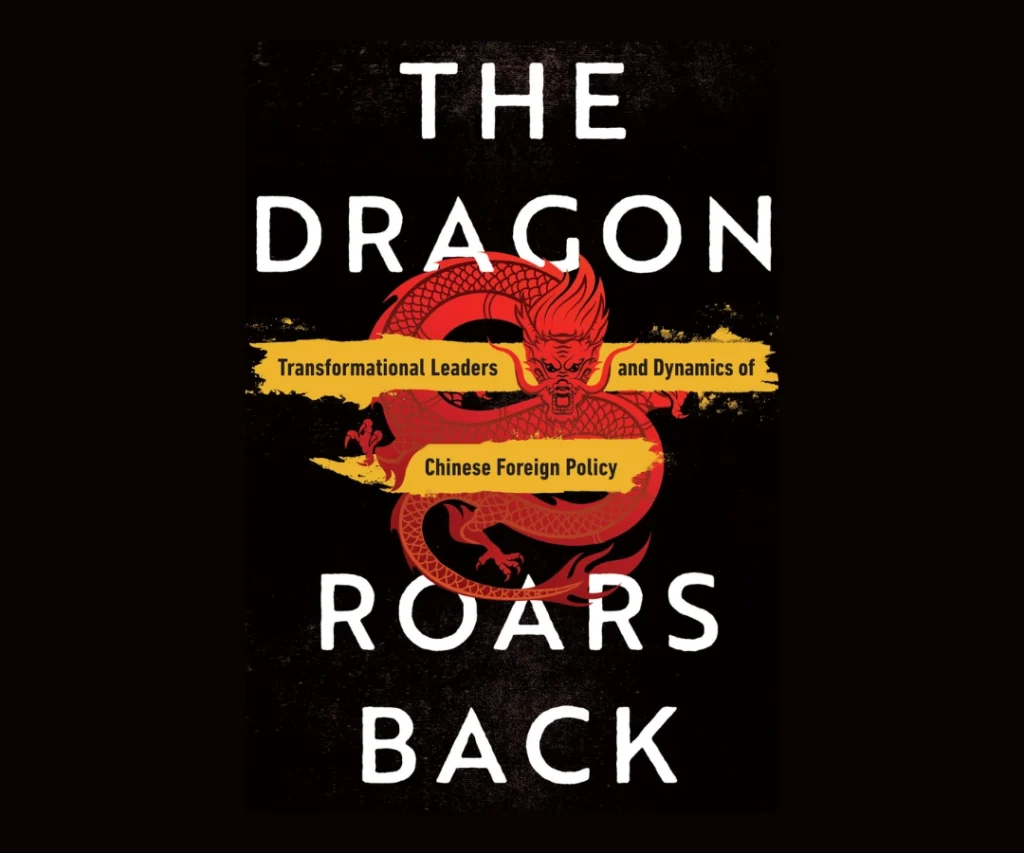
It argues that leaders matter in all political systems and matter more in authoritarian systems. Chinese leaders in the Leninist one-party system, which emphasizes discipline and hierarchy, operate relatively unchecked by oppositional parties, term limits, and public opinions to set the direction of Chinese foreign policy.
Xi arguably became the most powerful leader in PRC history, running the country without credible rivals.
However, not every PRC top leader used the power to chart a new course. The Chinese Communist Party (CCP) officially recognized five generations of leaders: Mao Zedong, Deng Xiaoping, Jiang Zemin, Hu Jintao, and Xi Jinping.
Three top leaders were purged: Hua Guofeng, Zhao Ziyang, and Hu Yaobang. My book distinguishes all eight top leaders into three types.
- One type is the transformational leader. These game changers have idiosyncratic visions and political wisdom to navigate the jungle of CCP power politics and prevail in their visions. Mao Zedong, Deng Xiaoping, and Xi Jinping were transformational leaders to pursue a revolutionary foreign policy, developmental foreign policy, and big-power foreign policy respectively.
- The second type is transactional leaders. They stayed in power but also on the course set by their predecessors. Jiang Zemin and Hu Jintao were transactional leaders and followed Deng’s policy course.
- The third type is failed leaders who lost power in the jungle of CCP politics although some of them had new visions. Hua Guofeng, Hu Yaobang, and Zhao Ziyang were failed leaders.
My book focuses on and documents how each of Mao, Deng, and Xi charted a new course for Chinese foreign policy, opening China to the world and drawing from the achievements of other peoples. Each leader had a unique vision and demonstrated political wisdom by mobilizing domestic ideational and institutional resources. They strategically explored international power distribution, as well as norms and rules, to advance their vision and succeeded in shifting the course of China’s foreign policy.
Mao’s Revolutionary Foreign Policy
Mao’s revolutionary foreign policy was based on his belief that the PRC was born in an era of imperialism; the themes of the time were war and revolution because when imperialism existed, war was inevitable and would lead to revolution.
Mao was a charismatic leader and crusader, making strategic and security decisions top-down, and delegating Premier Zhou Enlai to work with bureaucracies.
Developmental policy faced the most critical challenge after the end of the Cold War.
Using the century of humiliation to mobilize the Chinese to make China completely independent so that no external powers could humiliate China again, Mao made the decision to enter the Korean War in the 1950s and split with the Soviet Union in the 1960s, confronting both powers simultaneously.
Mao also encouraged Maoist insurgents to carry out armed struggles against the governments of virtually every developing country to seize control of the “countryside” of the world, encircle the developed “cities”, and ultimately cause the collapse of both the Soviet Union and the West.
A shrewd strategist, Mao took advantage of the heightened bipolar rivalry between the US and the Soviet Union and made flexible alignment to reduce security threats in the 1970s. Mao’s revolutionary foreign policy was rhetorically offensive, ideological, and militant but essentially reactive to the overwhelming security threats. The priority was to defend the border and regime security from the threat of hostile and powerful US and Soviet powers and keep the wolf off the border.
Deng Xiaoping’s Developmental Foreign Policy
Deng shifted Mao’s revolutionary foreign policy to a developmental policy to jump-start economic growth after the disaster of the Cultural Revolution. He envisioned that peace and development rather than war and revolution were the themes of the time. His top priority was economic modernization.
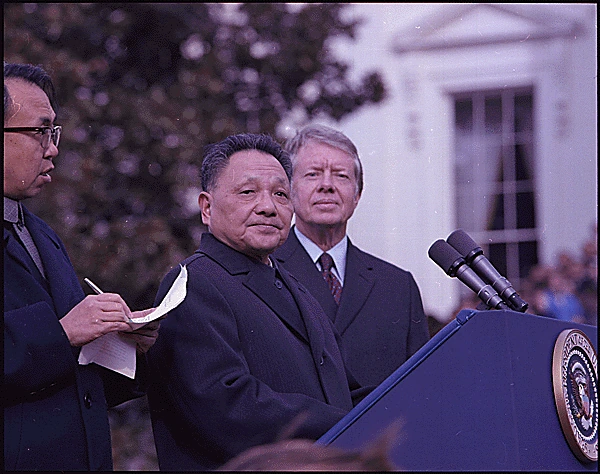
Foreign policy was to create and maintain a peaceful international environment for economic development. Deng normalized relationships with the US and the Soviet Union, played down its ambition to lead world revolution movements, modified its commitments to the insurgency movements in third-world countries, and departed from autarky.
In contrast to Mao and Deng, Xi is more willing to celebrate China’s imperial glory to boost national pride.
A pragmatic strongman and paramount leader, Deng never held the top party or government positions and placed his protégés at the top positions. A consensus builder, Deng delegated power to the bureaucrats to make routine decisions and ratified the decisions if they reached a consensus. He stepped in if they could not. Jiang Zemin and Hu Jintao continued to seek consensus through collective leadership.
While Deng continued to use the memory of the century of humiliation to motivate Chinese people for power and wealth, he attributed the national humiliation to China’s lack of development and developed a historical narrative that China was strong when it was open and drew deeper into the achievements of other peoples. When China closed itself, it fell behind.
Deng and his successors championed an affirmative nationalism focusing on an exclusive and positive “us” to make China strong by any means.
Developmental policy faced the most critical challenge after the end of the Cold War. In response to China’s economic and political vulnerability in the wake of the Western sanctions, Deng proposed low-profile guidelines to bide China’s time. Jiang Zemin and Hu Jintao continued the low-profile policy and were very cautious about playing down their pretense of being a great power. China was a moderate rising power to assure the international community that China’s rise would bring opportunities and benefits instead of threats to peace and stability.
Xi Jinping’s Big Power Foreign Policy
Xi Jinping steered China gingerly beyond the paradigm of developmental modesty and launched big-power diplomacy to achieve the “China Dream” of Great Rejuvenation and recapture China’s lost global power position. He declared profound changes unseen in a century in which the East was rising, and the West was in decline, creating the opportunity for China’s inevitable rise.
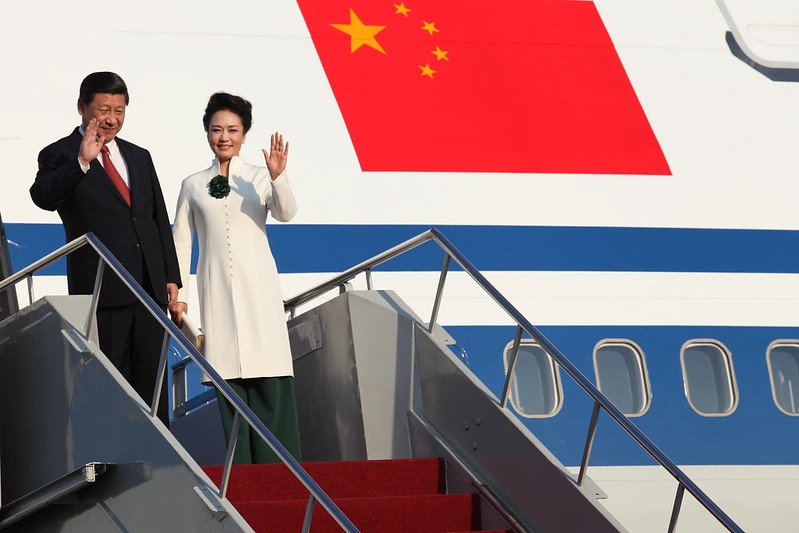
Xi quickly consolidated power with the consent of the ruling elite who complained that the Hu Jintao leadership was too weak and the factional makeup of collective leadership too divisive to curb massive corruption and liberal ideas, threatening the CCP’s one-party rule. Launching a wide-sweeping anti-corruption campaign to purge potential rivals, replacing them with trusted lieutenants, and establishing personal loyalty to him as the most important political principle, Xi arguably became the most powerful leader in PRC history, running the country without credible rivals.
The decision-making shifted from the consensus-building model to the Xi-in-Command model. Xi prioritized top-level design, politicized foreign policy bureaucracies, emphasized political loyalty over professionalism, and personalized Chinese foreign policy.
In contrast to Mao and Deng, Xi is more willing to celebrate China’s imperial glory to boost national pride. But what Xi celebrated is a reinvention of imperial China as the benevolent center of East Asia. Moving beyond affirmative nationalism, Xi called for a patriotic struggle to target negative others and Western values, nurturing a new generation nationalists intolerant to any criticism of the CCP regime and muscularly hostile toward Western powers and values.
Xi abandoned Deng’s developmental moderation and proactively shaped the external environment rather than passively reacting to it. Regarding the US as the top threat to China’s regime and national security, Xi emphasized the fighting spirit, no longer bent to America’s pressure and accommodated its interests unless the US complies with China’s unnegotiable and uncompromisable core national interests. Xi also constructed an “antihegemonic” coalition with Russia, Iran, and North Korea that shared sentiments against the US hegemony. Xi’s big power foreign policy used economic coercion against countries that criticized Chinese policies, and military intimidation against Taiwan, and other neighbors.
Presenting the Chinese vision for reform of the world order, Xi proposed “the Community of Shared Future for Mankind” to rejects Western values as universal and called for all socio-political systems to be respected as equally valid, i.e. democracies are not a model superior to authoritarianism. Expressing big power ambition, Xi unveiled many new initiatives like the AIIB, the BRI, Global Development Initiative (GDI), Global Security Initiative (GSI), and Global Civilizational Initiative (GCI), and vowed to show Chinese characteristics, Chinese style, and Chinese ambition and provide Chinese solutions and Chinese wisdom to the reform of the world order.
Explore Books Written by Our Contributors
With unchecked authority at home to behave as a muscle-flexing big power, Xi’s foreign policy caused pushback and resistance from the US and other countries. Making enemies on all fronts, alienating would-be-valued partners, and unifying rivals, China’s international environment deteriorated. China is more isolated and stagnated than ever since the 1970s. Xi’s big-power diplomacy suffered serious setbacks in recent years.
In conclusion, this book raises some questions for readers to think further: Is the dragon truly roaring back? What are the intended and unintended consequences of Xi’s assertive big-power foreign policy? What is China’s future as a great power?


